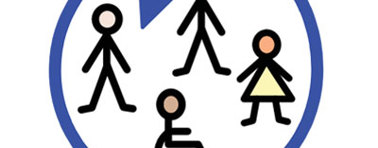Children's rights
Educators in Scotland are committed to upholding and promoting the rights of learners in a range of settings. The United Nations Convention on the Rights of the Child (Incorporation) (Scotland) Act 2024 gained Royal assent in January 2024. This is due to commence on 16th July 2024.
The Act will ensure that children’s rights are respected and protected in the law in Scotland. All public bodies and organisations who provide services on behalf of a public body will have to comply with the legislation.
Further support
The Improvement Service are supporting local authorities to prepare for the incorporation of the UNCRC. They will help take forward a children’s rights approach to policy and practice.
Children's rights and our work
-
United Nations Convention on the Rights of the Child (UNCRC) Booklet for parents, carers and family members
The UNCRC Rights of the Child Booklet is now available on the Parent Club website.
-
Children's rights
All children are entitled to basic human rights, as detailed in the 54 articles of the United Nations Convention on the Rights of the Child.
-
Recognising and realising children’s rights
This professional learning resource helps improve practitioners' knowledge, understanding and application of the UNCRC.
Learn more at your own pace
Learn more at your own pace
-
 United Nations Convention on the Rights of the Child
United Nations Convention on the Rights of the Child
The United Nations Convention on the Rights of the Child (UNCRC) describes what every child, from birth to 18-years-old, needs to survive, grow and thrive in order to live with dignity and achieve their potential.
-
Recognising and realising children’s rights
This professional learning resource helps improve practitioners' knowledge, understanding and application of the UNCRC.
-
Children's Rights in Youth Work - What, Why and How?
This is a professional learning resource aims to raise knowledge and awareness of United Nations Conventions of the Rights of the Child (UNCRC).
-
Learner Participation in Educational Settings (3-18)
Find guidance and support materials to help schools and early years settings develop an understanding of learner participation and plan for implementation within their setting.

About the UN Convention on Child Rights
The United Nations Convention on the Rights of the Child (UNCRC) is the basis for all of UNICEF's work and upholds children's rights all over the world. What is the UNCRCSimplified articles
The Children and Young People's Commissioner Scotland have published an overview of the UNCRC articles. The UNCRC articlesTaking a human rights approach
Guidance to provide information and resources to support public authorities and other organisations to implement a children’s human rights approach. Taking a children's human rights approach: guidanceLearn at your own pace
Education Scotland resources
-
 United Nations Convention on the Rights of the Child
United Nations Convention on the Rights of the Child
The United Nations Convention on the Rights of the Child (UNCRC) describes what every child, from birth to 18-years-old, needs to survive, grow and thrive in order to live with dignity and achieve their potential.
-
Recognising and realising children’s rights
This professional learning resource helps improve practitioners' knowledge, understanding and application of the UNCRC.
-
Children's Rights in Youth Work - What, Why and How?
This is a professional learning resource aims to raise knowledge and awareness of United Nations Conventions of the Rights of the Child (UNCRC).
How we work
introduction to list:
- connect our work to the real lives of children and young people (Article 3).
- think about the effect our work will have on children and young people, but also how we can respond to their ideas by changing and adapting what we do. We follow this principle when we work with adults too (Articles 3, 12).
- visit schools and other settings in the most environmentally friendly ways possible. We balance convenient digital connection with the value of in-person interaction (Article 24).
- help people talk about their learning and its effect on them, and, to do this in safe and supportive spaces where all are heard and have a fair chance to speak (Articles 2, 12, 13, 29).
- commit to engaging with ALL learners where and when we can, listen to their ideas and opinions and use these to help our own learning and actions (Articles 12, 29). Consider which learners we might not be hearing from as much and put things in place to change this.
- respect people's time and opportunity to relax and play. We avoid taking up breaks or lunchtimes unless agreed by all (Article 31).
- affirm the right to switch off for children, young people and adults (Article 31).
Sharing resources
Introduction sentence:
- always make sure that resources are in child-friendly language.
- consider whether resources should also be produced in Gaelic, British Sign Language or other community languages where appropriate.
- expand acronyms, including UNCRC, on slides and when speaking so everyone can understand what they stand for.
Being a rights respecting ally
We can facilitate and communicate the principles of UNCRC through:
- including a regular section on children's rights and the UNCRC in meetings
- asking for any special requirements participants or visitors have
- ensuring venues are fully accessible
- providing a way for participants to give feedback on how inclusive the session was
- making every effort to enable participants to use their language of choice
- treating people as individuals and avoid making assumptions or projecting cultural stereotypes
- linking the UNCRC articles to any professional learning delivered (see example)
- helping every child and young person reach their potential and help those who educate them to do so as well (Article 29).
- giving children and young people a meaningful voice in decision making
The Lundy model of child participation
Learn at your own pace
-
 United Nations Convention on the Rights of the Child
United Nations Convention on the Rights of the Child
The United Nations Convention on the Rights of the Child (UNCRC) describes what every child, from birth to 18-years-old, needs to survive, grow and thrive in order to live with dignity and achieve their potential.
-
Recognising and realising children’s rights
This professional learning resource helps improve practitioners' knowledge, understanding and application of the UNCRC.
Children’s Rights- Further resources
A range of resources to support conversations with children, young people and colleagues in Education Scotland, schools, other educational settings and stakeholder organisations.
